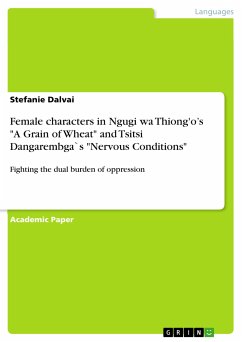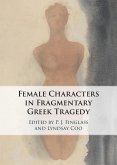Academic Paper from the year 2018 in the subject Literature - Africa, grade: 1, University of Malta (English Culture), course: The Postcolonial Novel 1: African, language: English, abstract: The three questions this paper tries to answer are to what degree the African women in both novels are or are not being dominated, what plays a role in this power-play and whether there is a significant difference between the depiction of women in the two novels, as they are set in two different African regions, Kenya and Zimbabwe. In the first section, the historical background of both plots is outlined, followed by an analysis of selected female characters of both novels. In the last section, conclusions will be drawn comparing both novels, its characters, its authors and the respective history. Men used to, and still do to some extent, dominate the literary sphere in Africa; therefore, the depiction of women was mostly that of a dutiful wife and mother. When this one-sided standard wasn't met, the rebellious protagonist was shown to 'suffer the tragic fate of the non-conformist' , which comprehended dying or being outcasted. It might seem harmless at first, as it is 'just' literature, but it is important to consider the influential power it has on people's perception of the world. For this reason, it became more and more important to analyze the representation of women in books and change it to a more positive picture. As the canon of female African writers started to grow, so did the multiplicity of different depictions of female characters. This change of view was not only to be found in female authors, but in male as well. Both Ngugi wa Thiong'o's A "Grain of Wheat" and Tsitsi Dangarembga's "Nervous Conditions" depict different types of women and their dual struggle in finding their own female identity against both patriarchy and the colonizer.
Dieser Download kann aus rechtlichen Gründen nur mit Rechnungsadresse in A, B, BG, CY, CZ, D, DK, EW, E, FIN, F, GR, HR, H, IRL, I, LT, L, LR, M, NL, PL, P, R, S, SLO, SK ausgeliefert werden.









